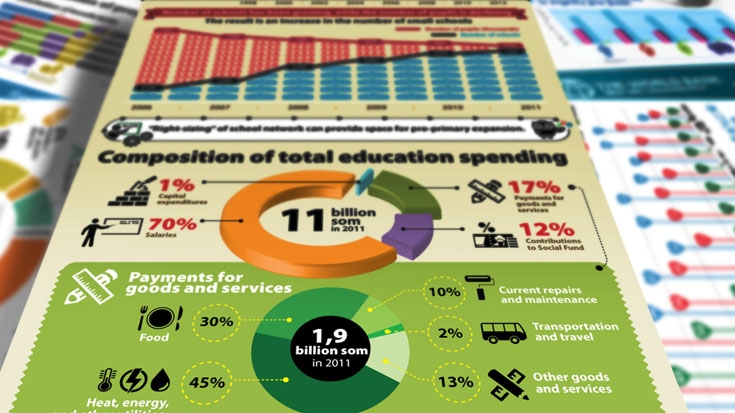The report takes a detailed look at the country’s macro-fiscal policies, intergovernmental fiscal relations, public wage bill, as well as public investment management, health care system, education, pensions and social assistance.
It provides recommendations for much-needed realignment and offers specific and practical policy options that could generate savings in a fiscally constrained environment. The review consists of nine documents, including eight thematic notes.
1. Strategic Setting
This note discusses the overall environment for fiscal policy, including the nature and composition of public revenues and expenditures. It concludes that sustainable fiscal consolidation can be achieved through reforming tax policy and tax administration to remove incentives for informality and reduce the burden of compliance; reducing spending while at the same time improving the quality of public expenditures, advancing reforms in public financial management to promote transparency and accountability in spending; strengthening monitoring and evaluation mechanisms for public programs and promoting use of evidence-based policy making.
2. Intergovernmental Fiscal Relations
This policy note provides a set of policy recommendations aimed at clarifying the role of local government and improving incentives for service delivery. The proposed measures are based on a review of the four pillars of intergovernmental fiscal relations in the Kyrgyz Republic, namely: expenditure assignment, revenue assignment, system of transfers, and public borrowing.
3. Management of Public Investments
This note provides a diagnosis of the public investment portfolio, including the structure of expenditures, the quality of the data, and a quantitative assessment of the efficacy and effectiveness of the public investment portfolio. It also reviews the institutional and administrative framework of the public investment management system in the Kyrgyz Republic, and gives detailed recommendations on improving the system.
4. Public Wage Bill
This note analyzes wage bill expenditure levels over the last decade with a closer examination of dynamics in 2008-2011. The analysis explores the key drivers of wage bill growth – public sector employment and employees’ wages in the civil service, education and health services, as well as institutional mechanisms for their control.
5. Education
This note presents an overview of the Kyrgyz education sector, covering its structure and governance, the demand for education services, and recent spending trends. It also discusses disparities in access, quality, and public spending across localities and social groups. It then looks at determinants of education quality and options for their improvement and offers concrete policy recommendations for sector reform.
6. Health
The analysis presented in this policy note suggests that, even though the Kyrgyz Republic has profoundly reformed its health system since independence, the growing prevalence of non-communicable and chronic diseases, and the funding gap of the state guaranteed benefit package, represent the most pressing challenges to the country’s health system.
The reforms that are needed to improve health outcomes and ensure the financial sustainability of the health sector include, among others, reforming the system of co-payment exemptions provided by the State Guaranteed Benefit Package – to enable a stronger focus to the poor and consolidation of exemptions – and improving the procurement system of hospital drugs and medical supplies.
7. Social Assistance
This note highlights the need for refocusing the system of social assistance towards the poor and making it more responsive to existing challenges and potential shocks. Acknowledging that the Kyrgyz government has already taken some steps in this direction, the note proposes a set of decisive reform measures that would improve the effectiveness of the system: i) a progressive shift of public expenditure toward pro-poor programs; ii) improving coherence and complementarity among social protection programs, and iii) making social assistance programs more inclusive and responsive.
8. Pensions
This note provides an overview of the current pension system and the main issues facing it. It presents the results of the financial projections for the current system assuming a non-reform scenario and its implications on the finances of the Social Fund, the cost to the government and the expected benefits. It also considers several broad reform options and their impact with respect to the financial sustainability and affordability of the system, as well as adequacy of benefits.
9. Power Sector
This policy note analyzes the principal challenges in the power sector of the Kyrgyz Republic and identifies possible solutions for overcoming them. To inform the analysis, the note describes historical operational and financial performance of the power sector companies between 2007 and 2012, and projects performance until 2030.
The note also describes the legal, regulatory and institutional arrangements in the sector, and compares the arrangements in the Kyrgyz Republic to those in other countries' power sectors. The note proposes a comprehensive package of reforms to address the challenges in the sector. Some reforms should occur urgently, while others will need to be implemented over the next three to five years.


